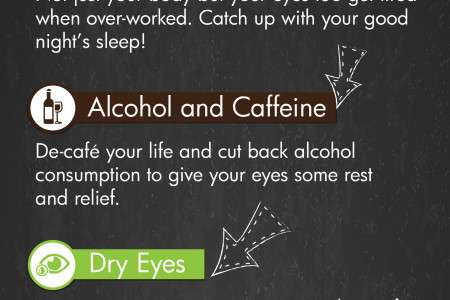
Your Shoulder To Lean On: Being a Recovery Ally
HOW TO BE A BETTER SUPPORTER TO THE ADDICTS IN YOUR LIFE YOUR SIOULDOA TO LEAN ON The "Do's and "Dont, of Being a Recovery Ally DO DON'T LEARN EVERYTHING YOU CAN ABOUT ADDICTION AND RECOVERY MAKE EXCUSES FOR AN ADDICT OR ENABLE THEM • Covering up their bad • Read books. behavior will only hurt their recovery. • Seek professional advice. • Be honest about their actions. CUS • Talk to other addicts in recovery or the family and friends of other addicts • Confront them EX about it. in recovery. • Encourage them to change. Be judicious: consult sources • Offer to help. you trust and find credible. DO DON'T SPEAK OUT CONFRONT THEM WHILE THEY'RE USING • Let the addict in your life know • Talk to them when they're sober and can have a rational conversation. that you are concerned and willing to help. • Talk to them when they can understand you and when they'll remember what you've talked about. DO DON'T MAKE JUDGMENTS ABOUT THE ADDICT IN YOUR LIFE EXPRESS CONCERN EARLY • You don't have to wait for someone to "hit rock bottom." • Once an addict is in recovery, they've taken a new step in their life. • Be aggressive with your concern – use specifics, encourage change, and don't let • Express love and support for this excuses get in the way step, instead of making judgments about of someone getting help. who they were. DO DON'T ENCOURAGE A LIFELONG RECOVERY WITH LOVING SUPPORT OF AN ADDICT'S RECOVERY HABITS EXPECT CHANGE TO BE IMMEDIATE • Recovery is a long, sometimes lifelong • Respect that the addict is an individual – they are NOT their addiction. They have hopes, goals, and a personality. process. • Change happens gradually over time. If it helps you to set goals, you can measure that change together in discrete steps. • Celebrate each inch of progress instead of demanding a full yard of change. DO DON'T PREACH OR ATTEMPT TO ASSERT CONTROL BE WILLING TO LISTEN • Recovery works best when an addict feels like they have someone they can be completely honest with, who they can trust, and who will be honest • Listen , try to understand what they're saying, then work together to make a plan of action. • Once you have a plan, stick to it and make sure with them. the addict sticks to it. • If you need to make changes, make them together. Spotlights on Boing a Rocovery Ally RELATIONSHIPS AND RECOVERY 40-60% • Not all addicts relapse, but of addicts do. A relapse is not Honesty and open the end of the communication is recovery process, but a bump in the road. Know that you might have to be there for that bump. especially important, and can help the recovery process and prevent relapse. XxX Many rehab programs Don't become co-dependent. Co-dependency occurs when one partner effectively sacrifices their identity to become a caretaker for recommend that a person avoid romantic relationships within the first year an addict. Co-dependency is dangerous for both addicts and their loved ones. of recovery. STOP THE STIGMA Addiction isn't something an addict can turn on or off with the flip of a switch. It can take years of hard work to get There's a lot of guilt and shame surrounding an addiction. An addict might feel these things and be willing to accept help - but rubbing salt in their a recovery started and off the ground. wounds could cause them to close back up. After a few years, a recovering addict might reach a point where they feel more comfortable and confident. Keep up with their progress, and check in with them. Every recovery is a unique process. PAY ATTENTION TO TRIGGERS XXx UNDERSTAND HIGH-RISK CREATE A SUBSTANCE-FREE TRIGGERS ARE UNIQUE SITUATIONS ENVIRONMENT TO EVERY ADDICT What people, places, and things might remind an addict in recovery Having a substance freely available in a recovering addict's living space is creating a high-risk This is where communication is important. Try making a list with the addict of all the things of their addiction? Try to avoid high-risk situations, especially in the early years of recovery. situation. that make them want to drink or use. Talk about these things and about how they can avoid them or overcome them. TAKE CARE OF YOURSELF, TOO! Taking care of an addict, especially in the early years of recovery, can be exhausting. Don't blame yourself for their actions. Ask for help. You might need it too! It's okay if you need counseling or a support group to help you get through a loved one's addiction - recovery is a community effort. Bringing yourself down by taking responsibility for another person's Take time to rest and recuperate choices will only make you less able to help them avoid making your energy. those bad decisions in the first place. Understand that you Reward yourself. Do something good for yourself – see a movie, go shopping, or take yourself to dinner. Reward your addict in recovery too - celebrate recovery together! might take care of them and support them, but you're not their caretaker. In order to conquer an addiction, you can't make yourself subservient to it. Morningside RECOVERY https://ncadd.org/for-friends-and-family/helping-someone http://www.foundationsrecoverynetwork.com/6-ways-help-someone-love-stay-sober/ http://www.psychologytoday.com/blog/where-science-meets-the-steps/201302/dating-recovering-addict-match-maker-or-deal-breaker http://alcoholrehab.com/addiction-recovery/romantic-relationships-in-recovery/ http://www.addictionsandrecovery.org/recovery-skills.htm
Your Shoulder To Lean On: Being a Recovery Ally
Source
http://www.m...very-ally/Category
HealthGet a Quote











